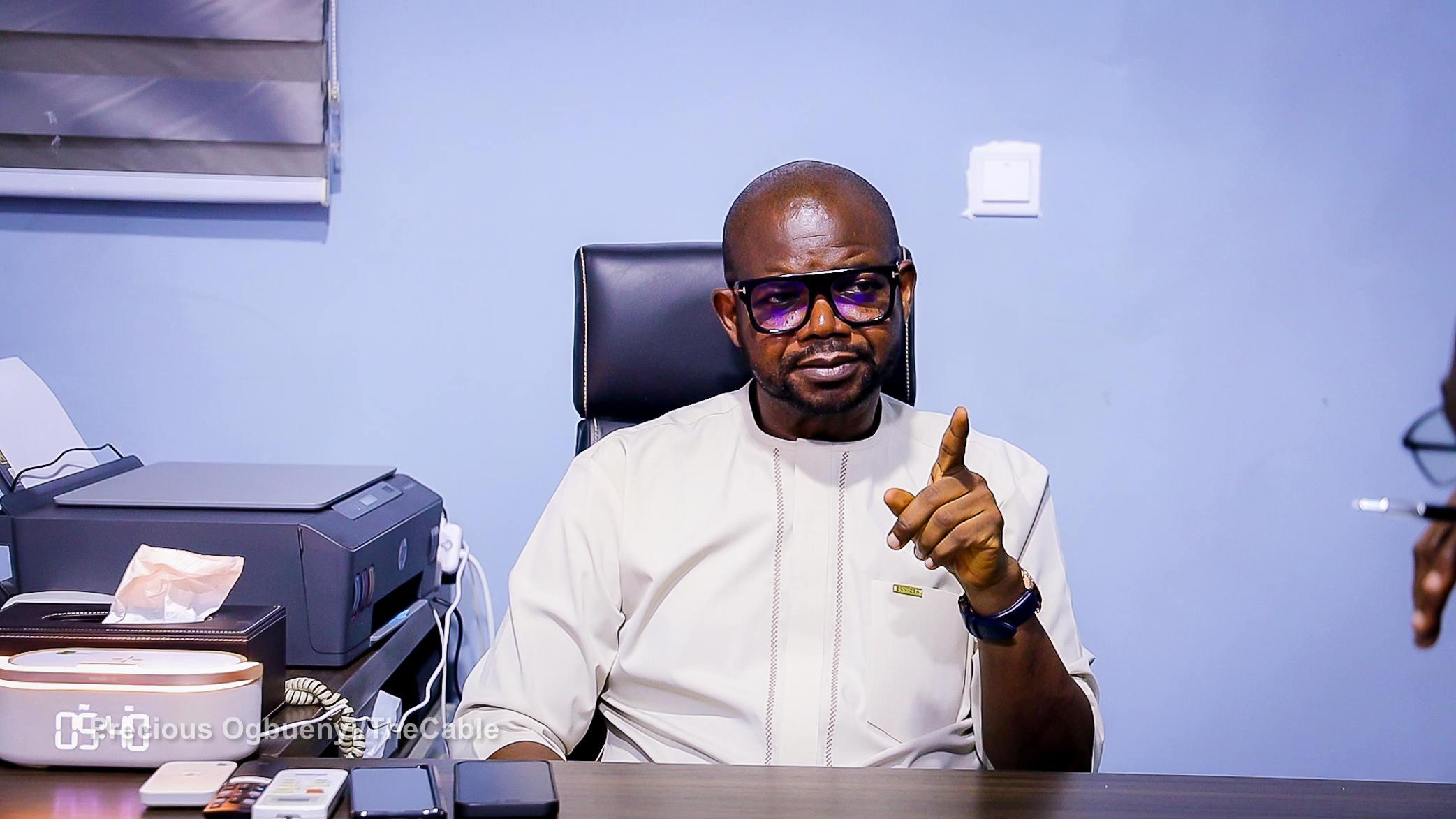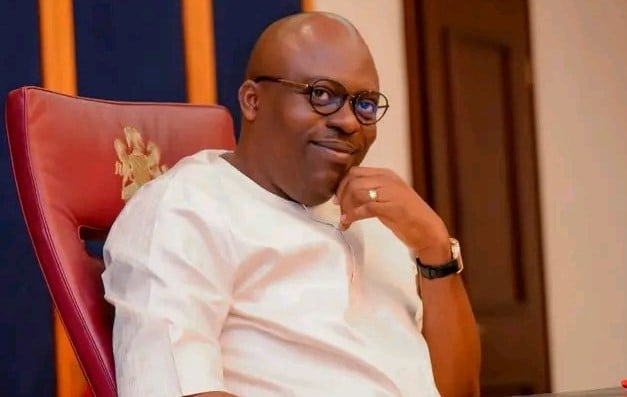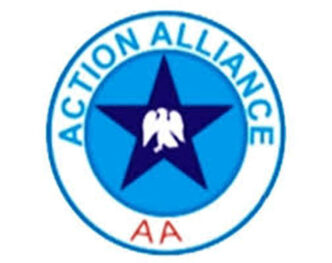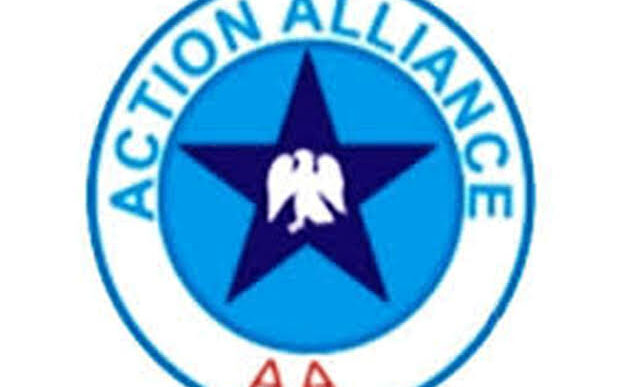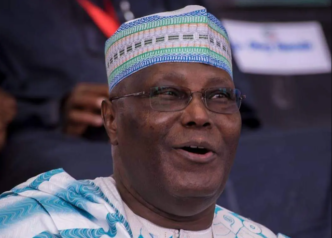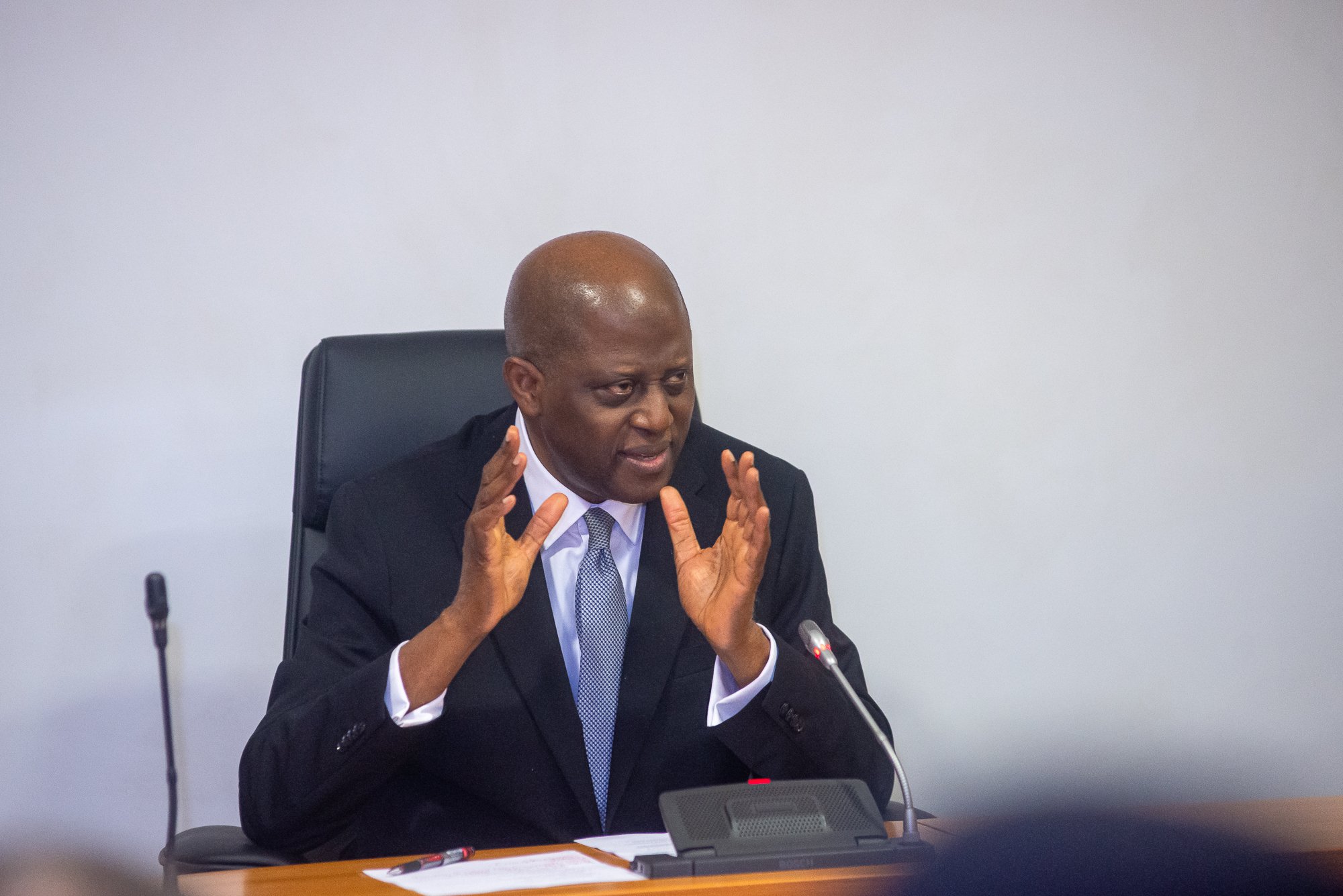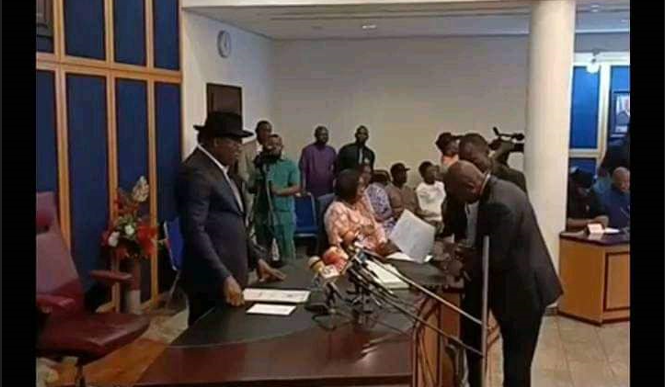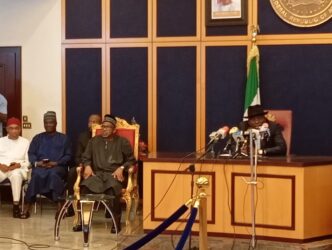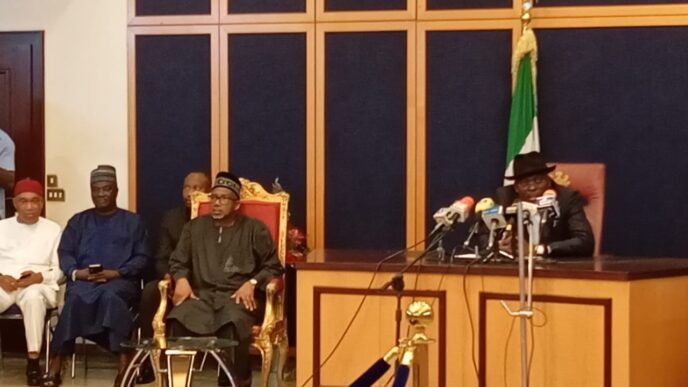Ima Niboro, former spokesperson to ex-President Goodluck Jonathan
Ima Niboro, a former spokesperson to ex-President Goodluck Jonathan, says the removal of the petrol subsidy was not done by President Bola Tinubu. In this interview with TheCable’s YEKEEN AKINWALE, Niboro said the president only announced the removal of the subsidy because his predecessor did not make provisions for it in the fiscal budget that the new administration inherited.
THECABLE: It has been over a year since the administration of President Bola Tinubu came on board. The president has taken some decisions and initiated policies that have impacted the economy and also the citizens. Can you assess the administration’s performance so far?
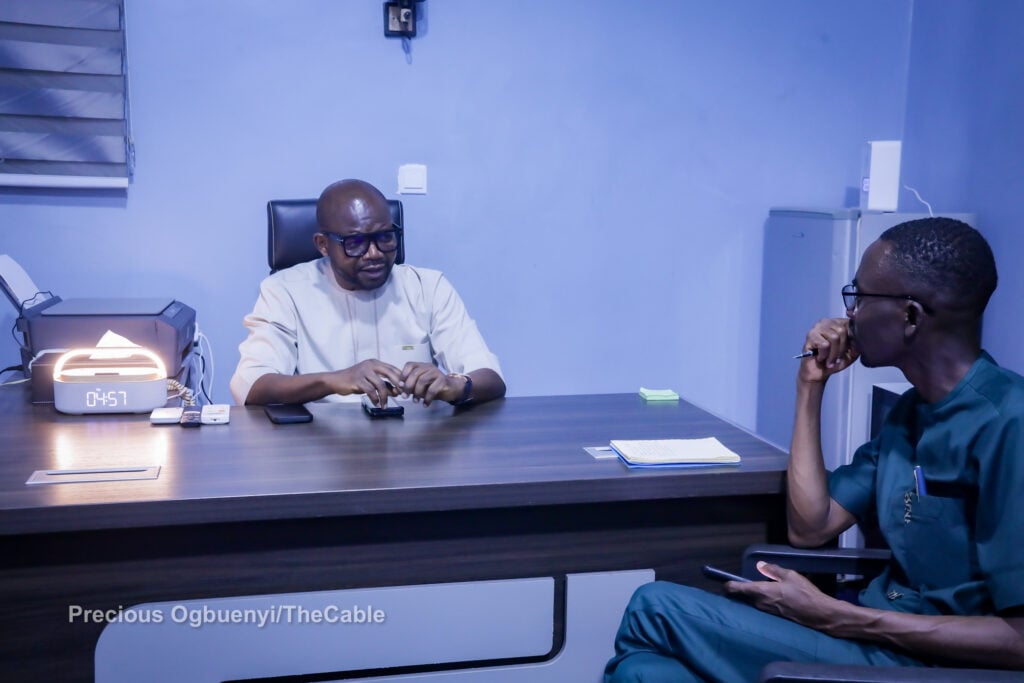
First, the government of President Bola Tinubu must be judged from the prism of what they met on ground.
The people in government don’t like talking about it. But what this government met wasn’t so good. And that is putting it mildly. And I think it is just out of decency on the part of the president and his team that they have been quite reticent about some things.
Advertisement
It is also a statement of the character of the president that he is taking all the blows and not passing buck back to down the line. I think I’ll leave it at that.
But suffice it to say that you don’t see this president blaming anyone else. He has taken the saddle in a full frontal and is surging ahead in the face of the storm.
Yes, he has made many tough decisions; but basically, there are two that have impacted Nigerians in very many ways. These two things are the removal of petrol subsidy and the floating of the exchange rate of the naira.
Advertisement
Before we proceed, let us recall that all three of the leading candidates who contested for the presidency last year, whether Peter Obi, Atiku Abubakar, or our current president were all in agreement that petrol subsidy must go. It was evident that the country was bleeding, and the subsidy regime was something that had become very difficult to manage.
When NNPC took over this effort and was solely importing, it became more manageable. It became more organised unlike when it was virtually an all-comers affair. People were licensed. Before you know it, somebody brings X metric tonnes and declares X metric tonnes. So, it was a mess which the current leadership of the NNPC took on and corrected.
The other issue is the exchange rate. It’s obvious that naira was being propped up artificially because in terms of supply and demand, which is basically what the foreign exchange market is about, the demand for the dollar is quite higher than the demand for naira.
If we are approaching the international market for anything, we need to spend dollars, and most of the things we use here, we import. If you look around us now, almost everything—your phones, your wristwatch, even your glasses, all of that is imported. And everything we need to buy from outside, is denominated in the international medium of exchange, which is the dollar.
Advertisement
I know that there are those who argue that there is no country that allows its currency to rise and ebb according to the vagaries of market forces. Yes, it’s a valid argument. But I’m sure that if this current administration had actually left the naira to full vagaries of demand and supply, the naira value would have been N2000 per dollar or worse. Even with what we are experiencing, I believe there is quite a bit of deft management, some creative situation management.
Look at where we are. This is a country where people actually buy and sell dollars as a side hustle. And I am not talking about the Bureau de change here.
There are people who once the dollar drops by any fairly significant margin, mobilise tons of naira and go and buy up as many dollars as they can lay their hands on, keep it somewhere, and once the naira crashes, they go and offload and make tonnes of profit. Which itself is a vicious circle. But it has become some people’s business. They call it Forex Trading, like people trade in stocks and bitcoin.It’s now a business.
When you go out and mop up all the dollars available, your mop up operation instantaneously creates scarcity. And the only thing a commodity needs to go skyward is scarcity.
Advertisement
So there a lot of unusual things, artificial things, going on around the forex sector. From time to time, CBN releases dollars to bureau de change.
But because they operate in an open market, there are no restrictions about who to sell to or not to, or for what purpose. So, if a bureau de change receives say $20,000 from CBN today, a forex speculator can clear out the entire sum that same day, and keep it, knowing that his actions would create the scarcity he wants, drive up the price, and when he offloads, he makes a killing.
Advertisement
So, the government has to be very creative in regulating this sector if not everything there will become a self-fulfilling prophesy of sorts.
THECABLE: But people talked about the timing of the subsidy removal and that the president could have waited a bit. What are your thoughts about this?
Advertisement
But all Nigerians know that it was not President Tinubu that removed subsidy. He only announced it. It was President Muhammadu Buhari’s government that removed the subsidy. In the budget that Tinubu inherited, there was no further provision for subsidy, and it was the burden of a government that was not even inaugurated to take the blows and bear the brunt.
Advertisement
THECABLE: Many Nigerians still believe that this government is not faring well irrespective of the amount of palliatives that might have been released and that whatever efforts are being made are like drops in the ocean. Do you think the government is getting its acts right?
Let me tell you one thing. It is very difficult, no matter the intentions; it is very difficult to reason with someone who is hungry. Even the president acknowledges that things are tough; he knows. He is a people’s person. This is the Tinubu we all knew from our days as Editors in Lagos.
The same Tinubu that was right in the boiler room of the NADECO resistance to the tyranny of the military. Look, I tell everyone who cares to listen that Tinubu is the first pro-democracy activist to become president of Nigeria, and I think we should all respect the significance of that. So, do you think such a man is divorced from reality? I don’t think so.
But his own peculiar reality as the leader of the country is either he takes tough decisions or the country he swore on oath to lead goes down. I believe that prosperity will come. It’s going to be tough; we need to give it time, but prosperity will come.
THECABLE: Petroleum products are the lifeblood of any economy, and many think that the coming of Dangote refinery would help to break the jinx in the production and supply in that sector. The first transaction between the NNPC LTD. and Dangote refinery was in dollars, and that affected the pump price of petrol. Is there any hope that things are going to get better?
The president has given a directive that the NNPC should sell crude to Dangote in naira. So, if Dangote gets crude in naira, that will reduce foreign exchange pressure tremendously by up to 40 percent I’ve heard.
Dangote is someone I have tremendous respect for. The government that I served was one that prioritised business and businessmen. It was my president, Jonathan, that broke tradition and gave a non-government functionary the national honour of the Grand Commander of Order of the Niger (GCON).
That honour is reserved for the vice-president and chief justice of the federation. But President Jonathan gave it to Dangote just to demonstrate how his government prioritised business and the economy.
Jonathan’s was the government that had an economic advisory council that was populated with businessmen instead of bureaucrats. I asked the president then for record purposes. He said ‘there is no way you want to operate a car, and the driver of that car is not part of your process.
You want to interrogate the processes of how this vehicle will take off from here to there, and you tell the driver to take the back seat while government people not involved in the day-to-day running of the businesses at the commanding heights of the economy, policymakers and not necessarily day-to-day operators, become the be all and say all?
That’s why he introduced the concept of a coordinating minister of economy under Dr. Ngozi Okonjo-Iweala. It was a response to what is called the concept of municipal chaos. Let’s take a municipal setting. You have the ministry of works building the road, the ministry of water resources laying pipes, and the ministry of power laying power cables.
If you don’t put them under one command, under one control system, you will have Works build the roads, only for Water Resources to break up the roads to lay water pipes and have Power blocking your drainage systems to lay their poles and cables. That’s the concept of municipal chaos, and that was what was affecting the Nigerian economy on a more global scale prior to the Jonathan administration.
You had various agencies of government working at cross-purposes with one another. Then you could have the Customs Service introduce a brilliant initiative only for the Ports Authority to short circuit it with its own “brilliant” initiative, and so on and so forth across the entire gamut of economic management.
That’s what made Jonathan, one of the most brilliant leaders this country has produced say, ‘we need one person who can sit atop of these activities, who can help control this chaos that has bedevilled our otherwise great economy. And it worked brilliantly. Under Jonathan, Nigeria became the biggest economy in Africa. CNN Money even projected Nigeria as the fastest growing economy in the world in 2014/2015.
You will notice that President Tinubu’s government also has embraced the concept of the Coordinating Minister of the Economy, because obviously, another brilliant mind is in office as president. And I predict that the positive global ratings Nigeria once had are on their way back in even greater significance.
Some of these things take time. It may be tough right now, but we must keep faith and persevere, because mainly, we have steady hands at the stern.
THECABLE: But Nigerians are not finding the price of petrol very funny right now. What’s the way out?
Petrol is probably 950 per litre or thereabouts, depending on where you are buying. It is definitely difficult for the majority of the people including myself. But then, that’s why the government is promoting Compressed Natural Gas as an alternative. And enthusiasm is building for it. It’s just starting but soon it’ll catch on like wildfire.
While petrol is about N950, CNG is about N250 or thereabouts. Once it starts catching up, you will see that petrol stations will be empty. And the good news is that gas is actually our biggest natural resource.
You know Nigeria is described in international oil circles as a gas country with a drop of crude oil. Our crude oil is a drop compared to our gas resources. Our gas is humongous, it is massive. There is gas everywhere in this country, north, south, east and west. So, it’s not going to be a matter of the Niger Delta or south-south states. Gas is the future of Nigeria; petrol is not. As we speak, people are setting up CNG plants. Government is giving incentives to people to convert their cars to CNG.
It may look long-term, but it’s not going to be as long as people think. It’s something that, with the seriousness I’ve seen, in the next one year we will have a large chunk of our vehicles, especially commercial vehicles, running on CNG.
This is why I must commend NNPC. People are busy attacking NNPC. I say no; NNPC has done very well. Do you know that for over a year, NNPC was absorbing over N600 per litre on every petrol that we are consuming in this country? The landing cost of petrol was about N1250.
In spite of that, the NNPC still declared a profit of over N3 trillion. They didn’t remit much money to the federation account because of this, but regardless, because of the floating of the naira and some other things, the government has more naira to work with, and Nigerians will benefit from this. The new minimum wage is one new benefit. The multi billion naira projects that are being initiated by the current administration will have tremendous spin off effects on thousands if not millions of Nigerians collocated in these project areas.
Also, the federation account allocation going to the states has become humongous to say the least. That’s why we must also look at the states; look at the allocations that states are getting currently and interrogate what they are doing with them.
When you talk to the states, they throw the book at you that this is a federation, you can’t tell us what to do. But every part of this country that makes the federation apart from the FCT falls within a state. Therefore, Nigerians who presently are complaining about this or that are all actually under a state governor. So, what your governor doing?
I am not saying all the governors are complacent and indolent. Not at all, because there are those among them who are working really hard.
However, people always confront the federal government, and the president, because he is the only elected official who has the entire country as his single constituency. So of course, people question the federal government and the president. But while questioning the federal government, let’s also question the state governments.
THECABLE: In what ways do you think Dangote can ease the burden on Nigerians with his refinery?
The federal government has directed NNPC to sell crude oil to Dangote in naira, which is good and the sensible thing to do. But there are still going to be a few challenges because the Dangote refinery is not designed 100 percent for Nigerian crude, but I don’t think many people know this.
He made an allusion to it in his recent Bloomberg interview, but I have known this for some time. No matter the situation, he’ll always have to import in order to blend our Bonny Light crude.
His refinery is not designed to refine 100 percent Nigerian crude. However, selling to Dangote in naira will definitely reduce the pressure on the naira no matter how you do the math, so the portion he has to import will not have a huge impact on the forex market.
I must really commend the NNPC, because it has played a very responsible role, especially under its present leadership. Since it became a company, it’s been run professionally. You know the Petroleum Industry Act made the NNPC as the energy supplier of the last resort, and in fulfilling this role of guaranteeing energy security for the country they absorbed half of the cost of the petrol that you have in your tank for over one year.
NNPC absorbed over N600 for over a year until it became a problem, and they had to cry out that look we are going down. If they were going to operate like a pure company, they would bring petrol at N1250 per litre and tell Nigerians they can’t sell below that. But because of that dint of patriotism, they said, ‘no, this is a company; we have to declare profit, but we also operate in a country, and we have to prioritize the welfare of the people over profits.
I also urge our big brother, Dangote, that at this point, it’s a business, but let him not prioritise profit too much. Nigeria has been very kind to him. Let him at this time show pure kindness to Nigerians. If he loses a couple of billions of naira along the line, he will make more billions from diesel, petrochemicals, and the over 5000 other products his refinery is designed to produce and sell to Nigerians and the rest of the world. A little bit of sacrifice in this matter will not make him any poorer. He must not prioritise profit at this time.
In his Bloomberg interview, he noted that petrol is cheaper in Nigeria than in Saudi Arabia, which is the largest producer of crude oil in the world. He also said that Saudi people look at it from the perspective that this is what God blessed them with; they should at least have some benefits from it, some kind of subsidy around it. This is also the mindset of Nigerians.
Nigerians have always felt that this is the thing we have. It’s like having vegetables cultivated in your backyard; you won’t pay the same amount of money for it as those that don’t have it. That is the mindset.
But of course, we know that it doesn’t work like that in modern economics. It is because of this that NNPC was swallowing up more than half of the cost of a litre. Let Dangote approach this petrol issue with the same mindset. His name will be etched in gold, and he won’t even be the poorer for it.
THECABLE: Local government autonomy has been granted by this administration; do you share the sentiment that it’s the right way to go?
Local government autonomy is a masterstroke. Don’t forget that the president was also a governor. So, he knows. If you go down history, he was the first governor to create local council development areas, LCDAs, in his state, Lagos, going over and beyond existing constitutional provisions. If you remember, this caused quite a bit of a fight between Lagos and the President Obasanjo led federal government.
I think there were 20 local governments in Lagos then that were in the Constitution, but he created LCDAs because he conceived it as way to bring development and governance closer to the people.
He has successfully replicated that intention by other means as the president. Why don’t the governors like it? It is just because these local governments are going to collect their allocations directly from the federation account. But in real terms, isn’t it easier for people to walk to the office of the council chairman than for them to walk to the office of the state governor?
This is the entire point, if you want to put it a touch simplistically. With the Supreme Court ruling, governance has unquestionably come closer to the people. You know, before now, local governments were just salary-paying centres. They send their salary vouchers every month and then maybe the Governor gives the council chairman a couple of millions for running costs, and everything is swallowed up upstairs at government house. All that will change now.
THECABLE: But some state governors are still kicking …
Naturally they would kick. And the very fact that they are kicking tells you where the pork barrel really was. Now they have no choice. They should embrace it. Are they not from local governments themselves?
Add a comment
